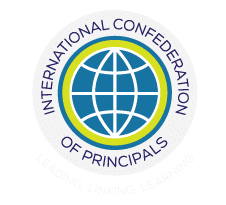ICP Executive ‘Must Read’ books
as a School Leader


Samanani provides us insights into the capacity of humankind to connect across divides…
Michael Hall
Why I believe you should read it too:
As a Gates Cambridge Scholar – a small group of international graduate students selected to create positive school change – Samanani asks “… as we increasingly come to see difference, whether in the form of conflicting values or growing ethnic diversity as an existential threat, … “, do we have to accept “… this splintering of societies and communities (as) inevitable – or can we act to prevent it?”.
School leaders are, as always, at the forefront of social change and we are particularly confronted at this present time, by splintering communities and by the intrusions that enter classrooms and playgrounds because of them. Samanani provides us insights into the capacity of humankind to connect across divides and provokes us to pause and think of the history of humankind and why ‘difference’ has driven so much of the conflict between peoples, races, cultures, religions and political camps. I contend, school leaders are profoundly capable and exceptionally placed to foster positive connections and to “… cultivate common ground, build healthy communities – and not just live but flourish together.”
One takeaway for me:
Interestingly, but not surprisingly for experienced school leaders, Samanani reflects in the concluding pages, that the London neighbourhood in which he spent so much of his local research time “… took shape, not through a single story, nor as an uncontainable jumble of difference, but through strands of connection, which wove diverse lives together – and allowed them to be rewoven, anew.”. School leaders are just so good at stewarding new ways of thinking, acting and coming together and I know we seem to do it as a natural way of strengthening culture in our schools and communities; and in today’s troubled world, our efforts are needed more than ever.


One of the hardest parts of claiming our own story is our fear of letting other people down.
Matt Johnson
Why I believe you should read it too:
Holly Ransom spent a decade interviewing some of the most prominent leaders around the world and distilled their lessons. The Leading Edge is divided into three sections: mindset, method and mastery.
One takeaway from the book that has impacted my career:
A critical part of effective leadership is being able to ‘own your own narrative’, writes Ransom. But it is not an easy thing to do.
“One of the hardest parts of claiming our own story is our fear of letting other people down. We perform a version of ourselves that stands up to social constructs, that smiles and nods rather than speaking out when we have a different viewpoint, that pursues a degree or job because our parents or significant other thinks we should, that bends over backwards to put the needs of others first. But every time we let someone down in the name of owning our personal narrative, there will be another we lift up — someone who sees us more clearly as a person they can relate to.”


First you’ve got to get the right people on the bus, and then get them into the right seats.
Damian White
Why I believe you should read it too:
“Good to Great” by Jim Collins stands out as a beacon for leaders aspiring to transcend from the ordinary to the extraordinary. Though not specifically about educational leadership, the book offers a deep dive into the traits that define the most successful leaders in the business world.
Why you should pick it up too:
In the book, Jim Collins refers to leaders, dubbed ‘Level 5 Leaders’, who embody humility, clarity of vision, adaptability, and a genuine commitment to nurturing future leaders. They rejoice in the rise of their successors, rather than viewing them as threats
One insight that’s shaped my career:
“First you’ve got to get the right people on the bus, and then get them into the right seats.”
These words encapsulate the essence of leadership that is both selfless and strategic, focused on the collective success rather than individual accolades.


Peter Kent
Why I believe you should read it too:
It’s a timeless exploration of our shared humanity, emphasizing the importance of empathy and understanding differing perspectives.
One insight that’s shaped my career:
Atticus Finch, the novel’s protagonist, imparts a gem: “You never really understand a person until you consider things from their point of view… until you climb in their skin and walk around in it.” Words that resonate profoundly with every school leader striving for inclusivity and understanding.
